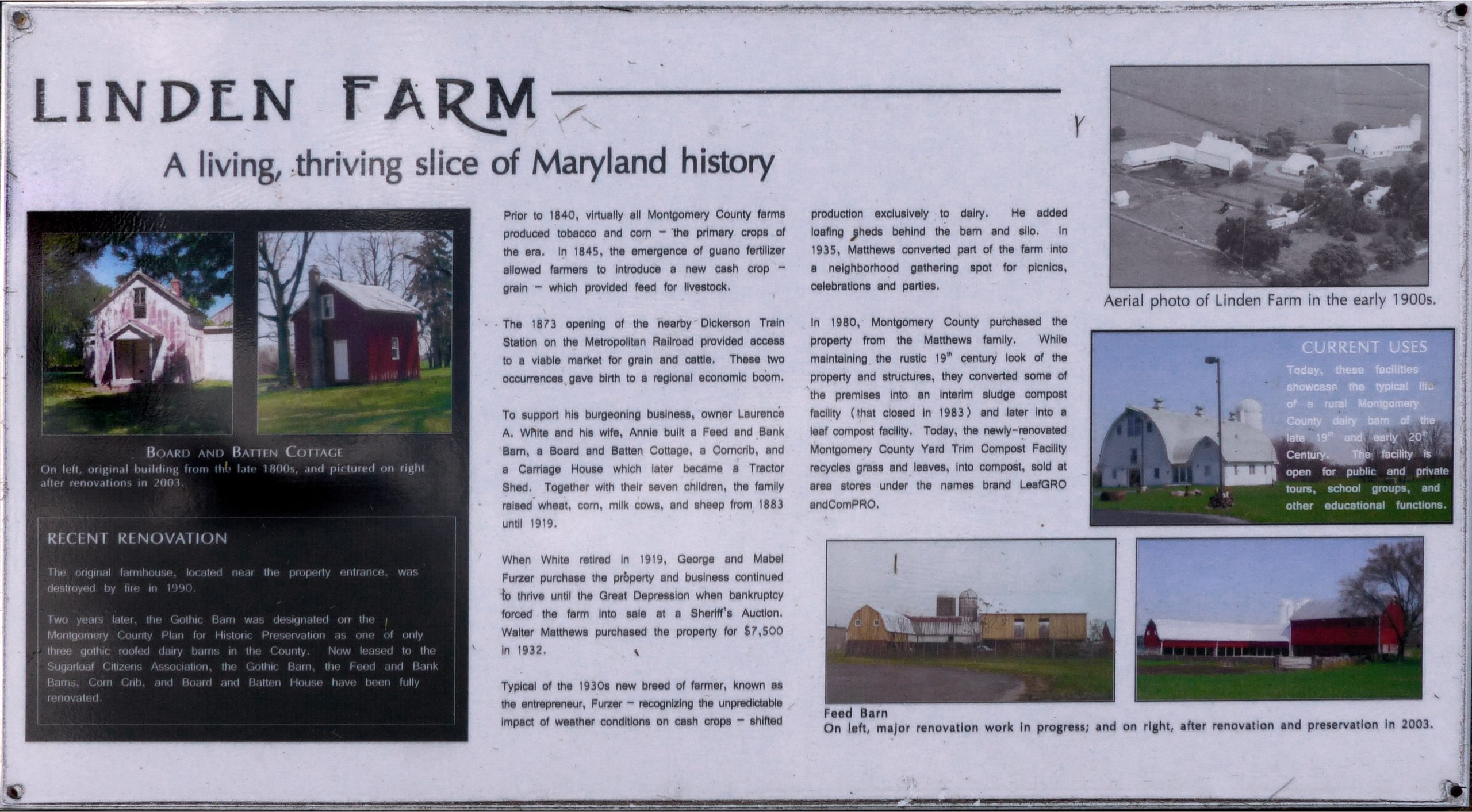Poolesville Seniors is hosting a Pig Roast and Line Dancing celebration at the Linden Farm Gothic Barn on Martinsburg Road. This property has a long history dating to the 1800s and the mid-century boom in agriculture. In 1980 Montgomery County purchased the property from the Matthew’s family and repaired and restored the farm buildings. Eventually the property was leased to Sugarloaf Citizens Association. There is a historical marker (ID# 146207) on the property which is listed in the Historic Marker database.
See the marker information below and remember to register for the Pig Roast and Line dancing on October 15th at 6:00 – 10:00 p.m.
Linden Farm
A living, thriving slice of Maryland history
Inscription.
Prior to 1840, virtually all Montgomery County farms produced tobacco and corn primary crops of the era. In 1845, the emergence of guano fertilizer allowed farmers to introduce a new cash crop grain which provided feed for livestock.
The 1873 opening of the nearby Dickerson Train Station on the Metropolitan Railroad provided access to a viable market for grain and cattle. These two occurrences gave birth to a regional economic boom.
To support his burgeoning business, owner Laurence A. White and his wife, Annie built a Feed and Bank Barn, a Board and Batten Cottage, a Corncrib, and a Carriage House which later became a Tractor Shed. Together with their seven children, the family raised wheat, corn, milk cows, and sheep from 1883 until 1919.
When White retired in 1919, George and Mabel Furzer purchased the property and business continued to thrive until the Great Depression when bankruptcy forced the farm into sale at a Sheriff’s Auction. Walter Matthews purchased the property for $7,500 in 1932.
Typical of the 1930s new breed of farmer, known as the entrepreneur, Furzer – recognizing the unpredictable impact of weather conditions on cash crops – shifted production exclusively to dairy. He added loafing sheds behind the barn and silo. In 1935, Matthews converted part of the farm into a neighborhood gathering spot for picnics, celebrations and parties.
In 1980, Montgomery County purchased the property from the Matthews family. While maintaining the rustic 19th century look of the property and structures, they converted some of the premises into an interim sludge compost facility (that closed in 1983) and later into a leaf compost facility. Today, the newly renovated Montgomery County Yard Trim Compost Facility recycles grass and leaves, into compost, sold at area stores under the brand names LeefGRO and ComPRO.
The original farmhouse, located near the property entrance was destroyed by fire in 1990. Two years later, the Gothic Barn was designated on the Montgomery County Plan for Historic Preservation as one of the only three gothic roofed dairy barns in the County. Now leased to the Sugarloaf Citizens Association, the Gothic Barn, the Feed and Bank Barns, Corn Crib and Board and Batten House have been fully renovated.
Topics. This historical marker is listed in this topic list: Agriculture. A significant historical year for this entry is 1840.
Location. 39° 11.864′ N, 77° 26.897′

